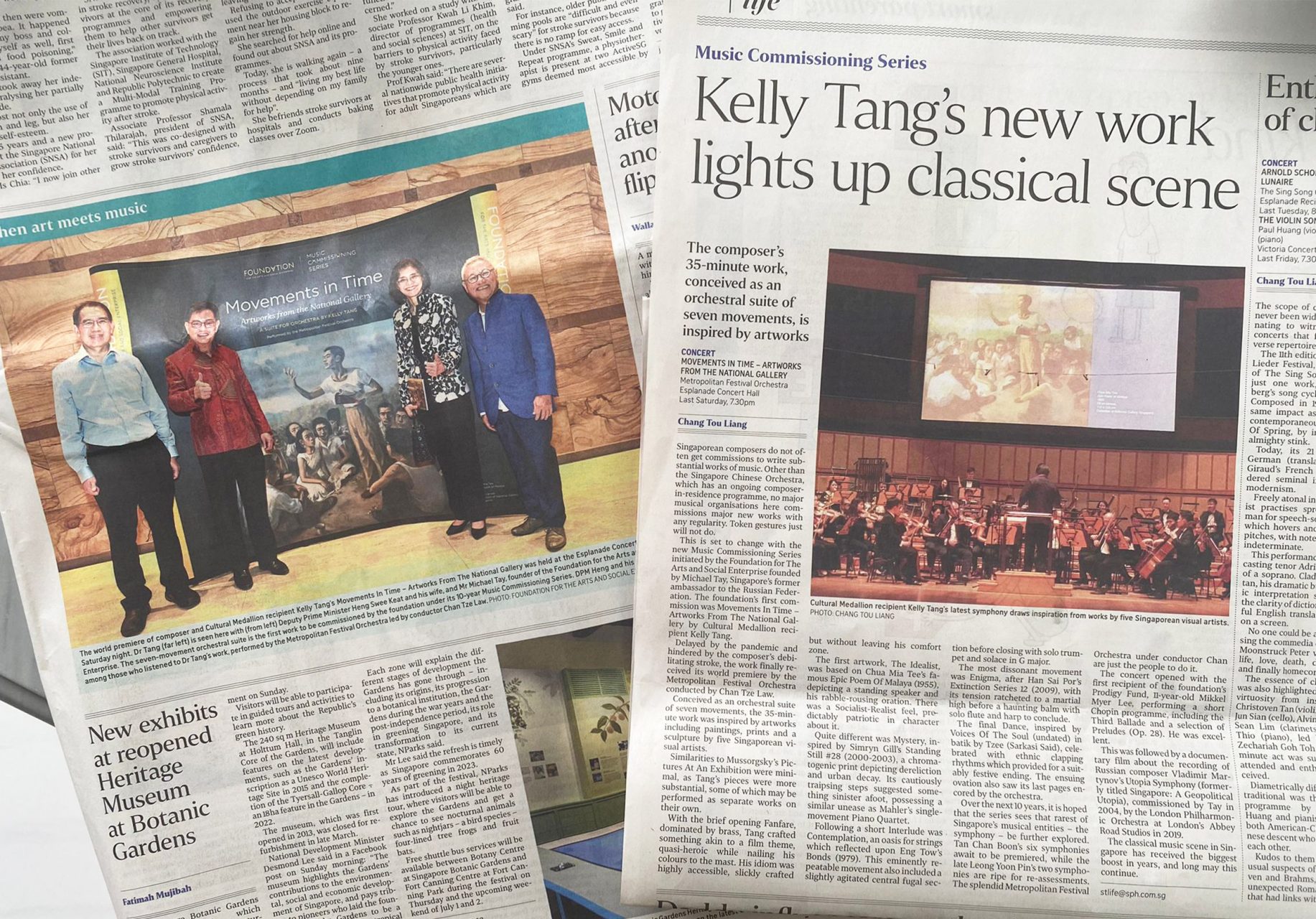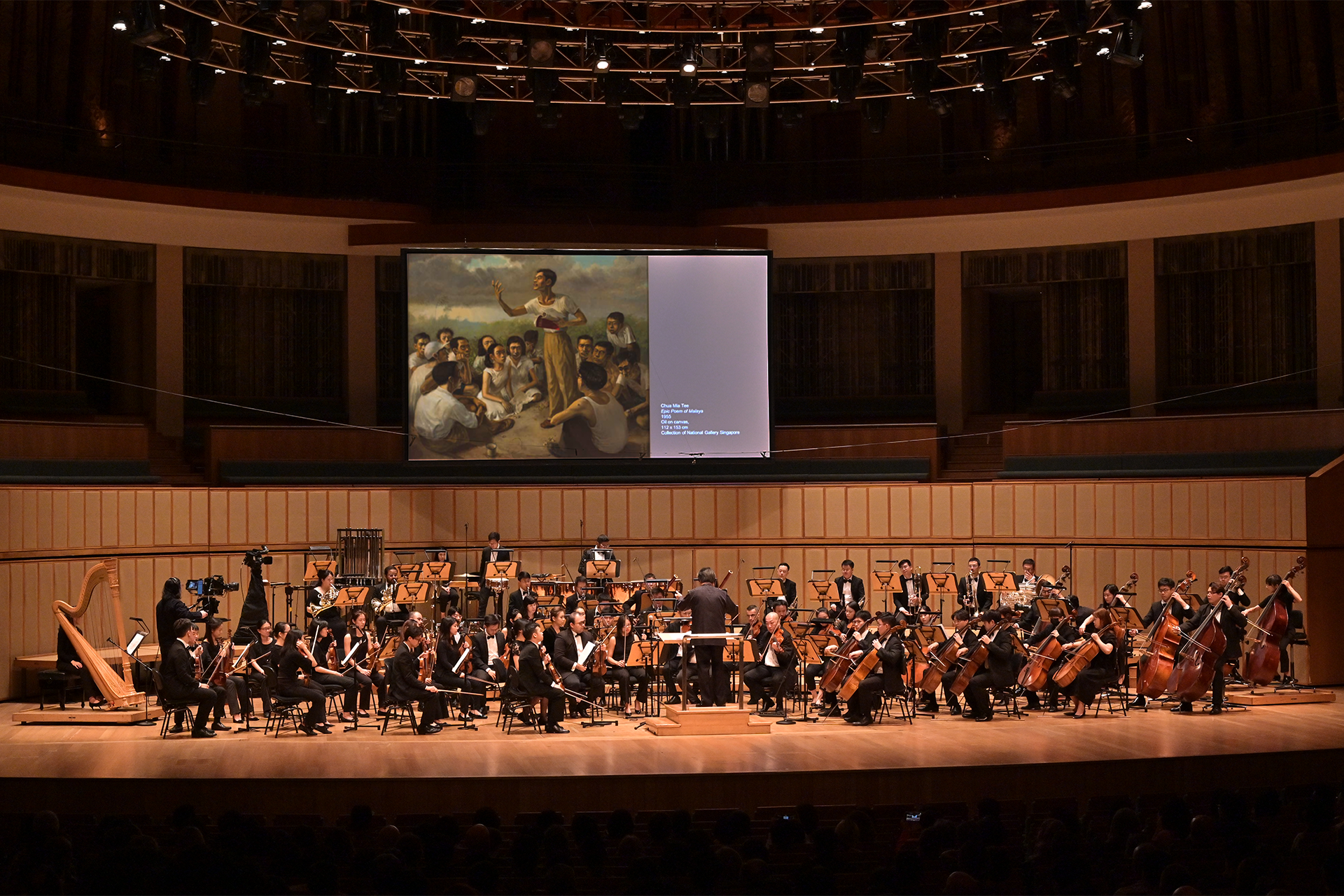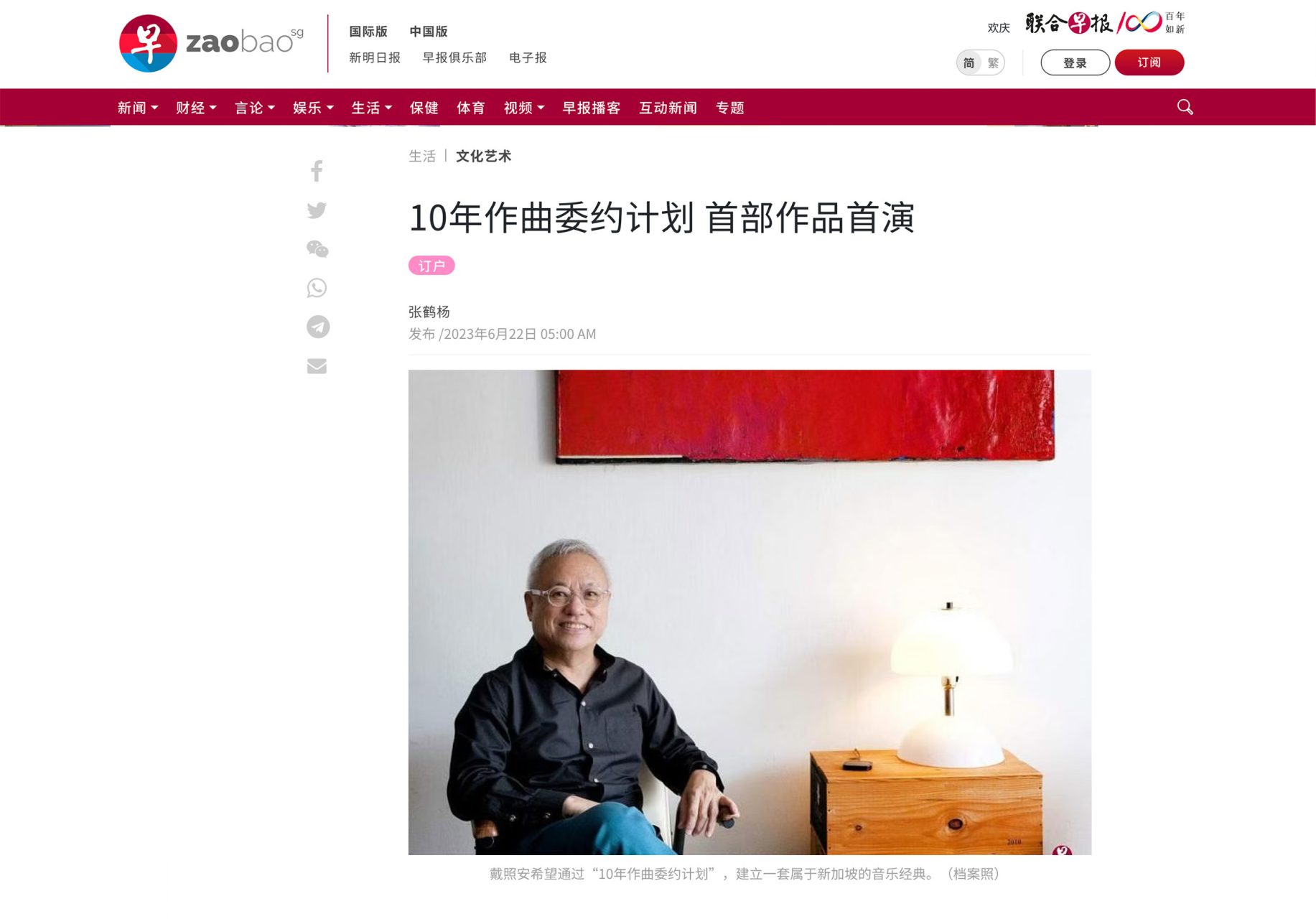Two weeks ago, renowned violinist Loh Jun Hong spoke with us on his experience as the soloist for the UTOPIA Symphony, his approach towards the arts and his idea of ‘utopia’. In Part Two, he talks about his own charity work, and looking for his own ‘utopia’ in Martynov’s terms.
You also seem to foray into other non-music or tangential to music ventures, for example, your charity organization. Is it accurate to call More Than Music a charity-based thing?
Yeah. So, More Than Music, we are more of a loose collective. Essentially, we’re trying to bring music to more people, and tackle the idea that classical music can be, you know, a genre that is a little more stuffy, a little bit more formal.
A little bit more esoteric.
Exactly, yeah. And we wanted to, you know, make it more engaging, and tell more stories about the music, so that people actually know that it’s really music for all.
We always speak to our audiences. And we try to storytell, and tell them about the stuff that goes on behind the music, which we found really helps give audiences a way into the music. Because most of the time, I would say, people are listening to it for the first time in a concert. Or maybe the second time. And for us, we would know the music because we’ve worked at it for a while, and we’re at home with it. So, we wanna give people a better shot at experiencing what we experience. I feel that if they’re able to feel what we feel about the music, then we’ve done our job well.
You mentioned something that a mentor of yours had told you, which was that it’s important to also take in art, and life, and experiences, and then to rechannel that through your chosen medium. And I am very curious about how that translates to a soloist, or the process of practicing for and performing a solo.
I think especially when you are younger – and this generally tends to happen for artists who have sort of gotten more serious about music earlier on, like if you’re talent spotted when you’re ten years old, there will be all kinds of expectations thrown onto you.
Like you know, I’m representing my country, or like, I need to win the next competition and stuff like that. Basically, the child would start to focus a lot on the instrument, or the art form itself – working on technique, working on phrasing and control. And that is so important. It’s incredible how much control, how much technique and how much work needs to be put in, in order to have great ability and facility.
But at the same time, living, breathing, feeling, like being part of the – well, being human, actually, is actually what art is all about.
And there was this famous pianist — Leon Fleisher — who used to say that technique is only a means to be musical. And so what my professor had always been trying to say was that – what’s central about art and music making is actually being human.
Since I feel like we’re moving towards more philosophical territory now, I’m curious about your thoughts on ‘utopia’.
I think for me, utopia is almost like – instead of thinking of it as a destination, it’s kind of a goal to work towards. Even in music, we never think of our playing as being perfect or – even the best recordings are never perfect. It’s always in search of perfection, in search of musical perfection.
And I think what’s interesting is when Martynov was using the Dao De Jing’s words, he saw utopia more as almost a kind of insular, inward looking state, right? A country, looking at itself, and trying to forge better ties with itself rather than comparing itself with other nations.
Right.
And that is very interesting. For me, I think utopia is when we can start to share and really start feeling part of a family, feeling like your neighbors, your country is part of your family. Somewhere we would be compassionate, have understanding and generosity in our spirits, to me that would be quite amazing. Going down the streets and feeling genuine familiarity.
Resonance.
Yeah, resonance, that’s a great word, resonance with other people, rather than seeing them as strangers.
It feels as though a common theme that’s coming out in our conversation today is this idea of connection, which is important in many different ways, not just connecting a listener to the piece of music that they’re listening to, or through that piece of music connecting them to themselves, or connecting people to each other, through community. And it sounds as though connection is something that you value quite a bit within and within music, in all the different ways that it can manifest itself.
Exactly. You’re absolutely right for me that that is central. And if you think about it, family, you’re connected through blood. Friends, maybe the catalysts would be connections through common interest, right?
And, hopefully, what we do in the arts is to forge more connections, through the art, to get more people to feel connected to each other. And to me that’s why utopia is when we’re able to feel connected to everyone in society, to feel that resonance.
And that must be one of the terrible difficulties of the time that we’re currently living in, which has forced us apart.
Exactly.
And, of course, forced everyone who performs in some way to reconsider and redefine what performance means for them. You take out the element of audience, or transform it in a way that removes its core essence. I mean, you’ve done zoom recordings, and I’m sure it doesn’t feel the same.
Yeah. Definitely, for the past year and a half, it’s been one of the most challenging times for the art sphere, and I’m sure for many other industries as well. What I find really interesting is the sort of the way the arts has actually changed because of it.
I’ve never seen so many collaborations with professional musicians and amateur musicians alike. I’ve seen so many of these symphonies, where hundreds of musicians send in small recordings of themselves, and people piecing it together to join orchestras as just as one big, wholesome work writes for us. And I think that’s quite incredible.
Aside from this, it also challenged us to think differently, like you said, about the arts. I started doing more video and online work. And I also started collaborating with different artists and different mediums. And I guess when you’re put out of your comfort zone, it kind of forces you to find a way through.
That’s a very nice, positive way to look at things. And it’s a nice optimistic way to bring me to my final question, which is — can you share something that you’re hopeful for?
I hope that this past year and a half has made people appreciate things that we took for granted. Similarly, what we do in music, we try to build contrasts, right? We talked about this earlier – the challenges, the dissonance and the struggle, make the final resolution all the more beautiful.
So I think what I do hope for is that when we do return back to normalcy, people would appreciate that better, whether it’s dining in restaurants, or listening to a live concert and sharing that experience with other people. And that those positive feelings would then build stronger connections with other people. I mean, that would be wonderful.
So in some ways, it’s not like utopia is this abstract, unreal thing that exists outside of us. It’s almost like utopia was already here, in all the things that we have, we’ve already had.







